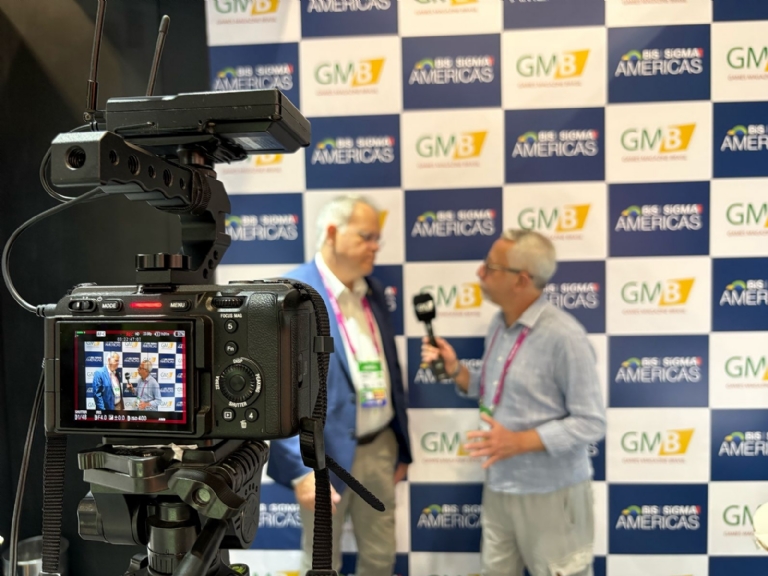

GMB – There's a lot of talk about the possibility of municipal lotteries operating. You're an expert on the subject. What is the current status of this situation?
Amilton Noble – This discussion was sparked by the ADPFs (Claims of Noncompliance with a Fundamental Precept) in the Federal Supreme Court (STF) almost five years ago. In my view, it's a late discussion. I had the pleasure of moderating a panel during BiS SiGMA that dealt precisely with this issue — municipal lotteries. What I understand is that, regardless of whether municipalities are allowed to operate their own lotteries, we need to move beyond that and discuss what the role of municipalities should be in lottery operations in Brazil.
In my opinion, it's more than time for us to define the role of municipalities, whether they're operating their own lotteries or benefiting directly from them. What cannot happen is a discussion where only the federal government and states benefit from the resources generated by lotteries. To me, that's unfair.
Should we redesign the role of municipalities so they can benefit, considering everyone wants their own lottery?
The origin of the sale of physical lottery products is within the municipalities. It's the residents who are purchasing somewhere, and when they buy a lottery ticket — whether it's state-run or federal — they’re generating revenue for other governmental entities. It's only fair that a portion of this contribution be directed to the municipalities, either by allowing them to operate their own lotteries and directly fund social causes of their interest, or by officially receiving transfers from the revenue collected within their territory.

As long as there's no further reduction in the payout?
That's the main challenge. The big challenge is that we can’t follow the federal model because — and anyone who follows me knows this — I’m a big critic of the operational model used by Caixa’s lotteries. I always make a point to separate the technical staff from the model itself.
My criticism is directed at the model, which is exactly what you mentioned: “Need more money? Take a bit from the bettor.” That becomes a vicious cycle and the products don't grow. That’s a model we shouldn’t follow.
Does Brazil have the lowest payout rate in the world?
If it's not the lowest, it's one of the lowest. There are some variations across countries, but it’s absolutely unfeasible. As noble as the causes may be — and they really are — no one questions the allocations made by lotteries. But we need to understand that what has to increase is the volume. The pie needs to grow because, even with smaller slices, a larger pie means significantly more funds in financial terms.
I always like to highlight the Massachusetts case in the United States, where the lottery decided to reduce its share to increase the payout to players. This happened with instant lotteries many years ago, and the revenue multiplied by six compared to what was previously collected. That’s the model we should follow. The main focus of a lottery operation must be the bettor. Unfortunately, we don’t have that culture in Brazil.
Could sports betting be the solution for municipalities and states to increase revenue, since the dynamics of sports betting allow for a much more attractive payout than traditional lotteries?
Fixed-odds sports betting is a very clear example of this difference. The minimum payout established by law is 85%. Some operators go as far as offering RTPs (return to player) of 96% to 97%.
It’s nearly impossible to compare a traditional lottery paying out 43% in prizes — like Mega-Sena — to a game like Aviator or Fortune Tiger, which pays back 96%. That clearly shows that, even with lower margins, the high turnover volume sustains the operation. And that’s the model traditional lotteries need to follow, because they must find new ways to reach their players — otherwise, renewal will be very difficult.

Is there a misunderstanding on the part of the bettor, who sees a Mega-Sena prize of R$40m and thinks they're winning a fortune? What does those R$40m represent in relation to the total revenue of that draw when compared to fixed-odds betting?
The offer profile is completely different. The Mega-Sena, which is the country's biggest lottery reference, is a life-changing product — and for winners, it does change lives. Being a cyclical product with three weekly draws, it serves a very different purpose compared to sports betting, which is more about entertainment. That’s very clear — and I always like to use Mega da Virada (New Year’s Mega Draw) as a reference. Mega da Virada becomes a national phenomenon. Everyone stops what they're doing to buy a ticket, whether they consider themselves lucky or not, because it’s about the dream.
I think last year, if I’m not mistaken, it reached R$600 million. If we had a proper payout, we could have a Mega da Virada every month instead of once a year. Instead of R$600 million, we’d be talking billions, like lotteries in the United States.
With the growth of state-level lottery operations, are we heading in a new direction?
We’re heading toward competition, toward a landscape where the long-standing assumption that “this is how lotteries have to work” is being challenged. That assumption is starting to be questioned by state movements, precisely because private operators enjoy greater flexibility and a different level of freedom in managing their businesses.
We often criticize Brazilian lottery operations, but let’s not forget: to launch a new lottery product here, you need to pass a bill through the National Congress. That’s absurd. It paralyzes the sector.
We need more freedom for operators, and state lotteries are paving the way for a new lottery model in Brazil — especially if municipal lotteries are validated. Then we’ll have three levels of intense competition, with operators empowered to create products with more attractive payout rates.
Source: Exclusive GMB